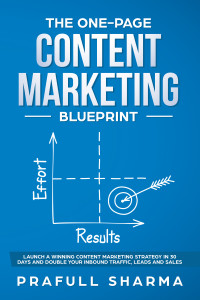Real World B2B Marketing: Not an Episode of Mad Men
Any content marketer who has been in the B2B industry for any length of time understands how rapidly the industry can change. As customer needs, technology, and business practices evolve over time, so too does the need for company professionals to remain aware of the changes in B2B marketing.
The B2B market is not like an episode of “Mad Men”, where an idea is pitched to a particular business and the executives decide immediately to either go with the proposal or not. B2B marketers are in a unique position which brings with it challenges and an ever-changing landscape. Attracting the attention of consumer and motivating them to buy a product involves a very different process compared to a business-to-business sales journey.
Different goals exist for B2B marketers than for B2C marketers. Glenn Gow of Crimson Marketing recently shared 4 ways in which the B2B buying process is changing.
- Influence of content: In order to succeed in this industry, a documented content strategy is a must. A documented strategy allows marketers to feel less challenged and feel more effective.
- Competition: Technology has enabled much of the buying process to be done before a buyer makes contact with your company. This creates a more challenging, more competitive market in which B2B businesses are working to attract the right audience.
- Social aspects: There is no doubt social media has changed the face of B2B marketing. 92% of marketers cited social media content as the tactic they use the most. As growth in this area continues to grow, content marketers would be wise to manage a regular media presence in order to strengthen connections with potential buyers.
- Complex growth: The rapid growth of marketing technology is changing how decision-makers choose between potential companies. The key is to grow relationships with customers as the buying process continues.
The State of B2B Marketing
Salesforce recently released its 2015 State of B2B Marketing report, which details goals, trends, and obstacles that currently exist in the industry. Survey responses from over 2,000 marketers were compiled in order to present a snapshot of plans and goals.
- Spending: 34% of B2B marketers have a plan to shift spending from the traditional advertising in mass form to a digital channel approach. A whopping 84% of B2B marketers are looking at 2015 as the year of increasing (or maintaining) spending. In a culture inundated with social media, bloggers, and constant communication, the shift is not surprising.
- Technology: When it comes to providing customers with the right tools for the journey, 57% of marketers surveyed say CRM (customer relationship management) tools remain most critical. Marketing analytics and mobile applications came in close behind (53% claim to have integrated some type of mobile marketing into their overall strategy). In 2014, two-thirds of Americans owned a smartphone; as society continues on its path of technological advancement, B2B customers are no exception.
- Challenges: B2B marketers continue to see new business development (33%), quality of leads (32%), and demand/lead generation (27%) as the top industry challenges. High quality leads continues to be a complex problem in the business, due in large part to the unique sales process B2B companies face. You do not just want new customers-you want qualified customers who are engaged and fit well with your company’s goals.
Putting It All Together
B2B marketers should be well-aware of the scenery surrounding them; social interaction, competition, and the importance of content remain important issues in this business. As marketers plan to spend more on advertising and look for more effective ways to connect with potential leads on the buying journey, customer relationships require continued development and nurturing.
Responding to challenges is not always an easy process. It takes time to improve content management, develop patience during the long sales cycle, and rise above the competition. There are countless resources available for B2B marketers and experts to be found who will freely give advice based on their own experience and opinion. But if these survey results show us anything, it’s that real-world marketers are right alongside you, working to do the best for their business.
What current B2B marketing challenges are you facing? Do you relate to any of the survey results in the State of B2B Marketing report?
Share This Story
Get the latest growth ideas, strategies, and best practices delivered to your inbox.
Quick read that helps 7000+ subscribers.








